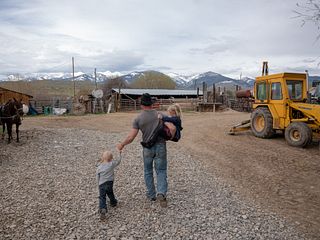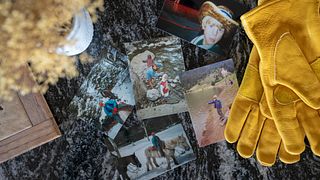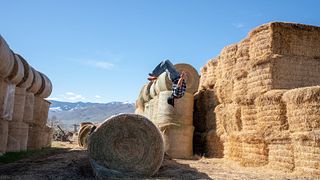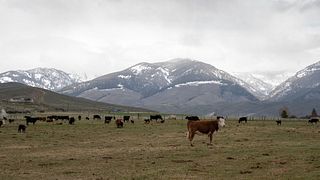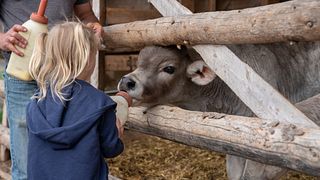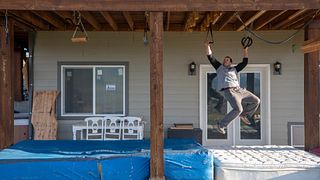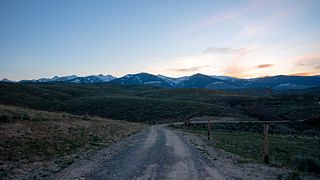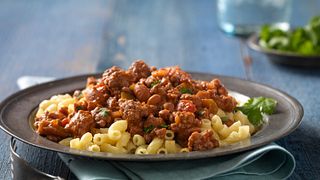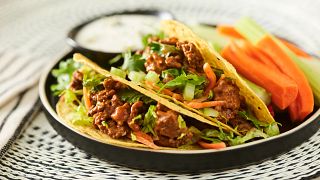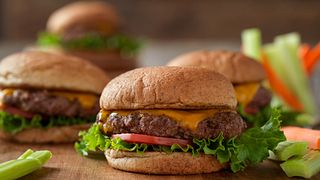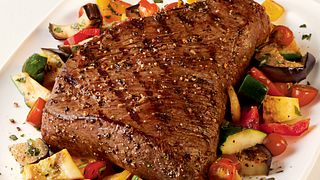Lance Pekus
“People might think I'm strong, but, for me, it’s the people behind me, it's the people that support me, the ones that are there for me that are strong and maybe their strength is getting shown through me.” - Lance Pekus
Cowboy Ninja, Lance Pekus, Gets His Strength from Ranching, Family and Beef.
Lance Pekus, also known as the Cowboy Ninja, ranches with his father-in-law in Salmon, Idaho. Lance met his wife, Heather, in college and fell in love with the family, community and ranching lifestyle. While Lance’s day job is helping raise cows and calves in the central mountains of Idaho, he still finds the time and (thanks in part to beef and his family) the energy to compete as a Ninja Warrior.
Facts At A Glance:
1976
ranch was founded
22
years old when started his own herd
10k
acres of public lands managed by the ranch
1
and only "Cowboy Ninja"
10
essential nutrients found in beef
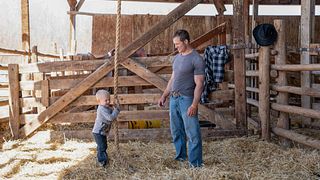
"My kids are strong to me. The strength that they show when they're running around and they fall over and, they just get up, dust themselves off and like, ‘I'm okay.’ That's strong. And my wife, what she goes through physically and mentally every day. That's strength that you just can't pinpoint."
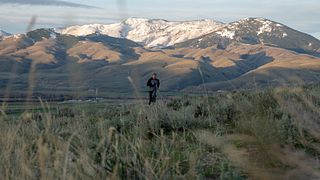
"It's not always about your physical abilities. A lot of this stuff is mental, being able to hold on and push through those moments where everyone else gives up or fails. Living on a ranch has really taught me how to push through. There's a lot of moments where you just don't want to work throughout the day, or you're physically tired, but you have to push through."
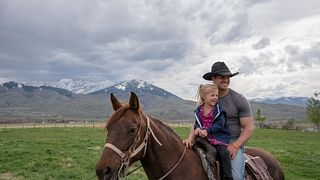
"I look at people in my life, and I’ve got family strength. Sitting around the dinner table, eating, talking with your family, talking about their day. That all builds strength, emotional strength, mental strength. All of that builds the overall strength of a person."
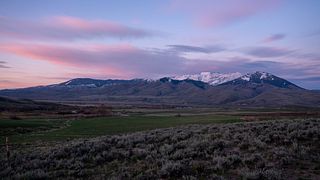
"We want better things for the environment. We want to see the wildlife and environment thrive so our kids have a better time and a better environment than what we had."
Meet Your Rancher:
What do you like most about the ranch life?
Ranch life definitely gives you a sense of worth, a sense of peacefulness. You can work hard and be out in the sun and sweat all day, and you got something to show for it. You can see what you've raised, what you've produced. In the end, it's an honorable life. You can hold your head proud and say, hey this is what I do. I ranch, this is where I live. I’m proud of what I do, where I live.
How did you get into ranching?
I started working and helping my father-in-law when I was 18, spending the summers at the ranch. I moved permanently after college when I was 22 and started building up my own small herd. I grew up in small towns and bounced around, but never really had a hometown. I met my wife in college and came home for the summer and just fell in love with this beautiful valley and the ranch life. I fell in love with ranching and working with the cattle and the land. Being able to ride the range and just the whole nostalgic feeling of living and working on a ranch, it really is just a beautiful, peaceful life.
What is your primary source of strength?
Obviously, beef is a big part of my life, and it's a big part of my diet as an excellent source of protein and other essential nutrients but, to me, strength comes in all sorts of forms. It's hard to pinpoint exactly who is strong and not. I look at people in my life, and I’ve got family strength. My kids are strong to me. And my wife. That's strength that you just can't pinpoint.
What does being part of the beef community mean to you?
Being a part of the beef community is great. We’re all a hardworking group of people. Whether we're living here in Idaho, or if we're living across the world, we all go through the same stuff, and we're all doing the same thing to care for the cattle and the land. We all are sacrificing our days to benefit the lives of our animals, and there's a connection there.
How does your ranch utilize public lands?
We go out on the range of about 10,000 acres of Bureau of Land Mangement (BLM) public ground. We go out on public land, and we manage that land because we want that for the next generation to be able to use. If we go out and we destroy the grasslands and overgraze it, then it's no good for us the next years and no good for our kids to hand it down to. Ranching out here, we enjoy the wildlife just like anyone else; it's actually in our backyard. We truly do care for the environment.
Lance Pekus
Salmon, ID
Cow/Calf Ranch
Cows are bred and calves are born and raised every year on cow-calf farms and ranches, spending time grazing on grass pastures within sight of their mothers.
